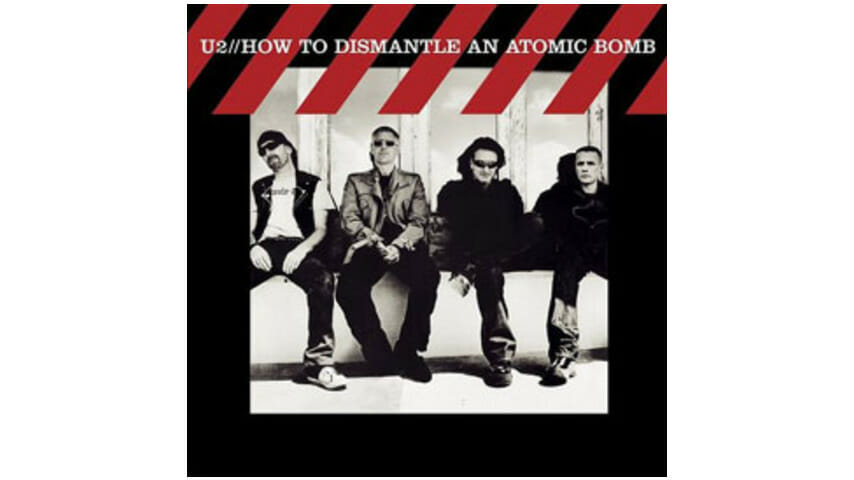U2 – How to Dismantle an Atomic Bomb

In this era of clamped-down security, record companies no longer hand out advance pressings of superstar albums, and reviews are frequently based on one listen in an office or conference room. Since one of the things that makes a great album great is its depth, and since I’ve heard it just once, I can’t tell you whether How to Dismantle an Atomic Bomb will bloom or wither over time. But I’m sure about a couple of things: the record is loaded with thought-provoking songs, and The Edge has brought his A-game.
When U2 made All That You Can’t Leave Behind in 2000, the world was a very different place; nonetheless, the album’s key songs, “It’s a Beautiful Day” and “Walk On,” seemed to speak directly to a collective need for affirmation in post-9/11 America. Four years later, with the shit hitting the fan on a global scale, the planet’s most responsible rock band reacts to crisis on a grand scale and the widespread anxiety it provokes as you’d expect: with solemn concern and an undimmed humanistic hopefulness. At the same time—because The Edge, Adam Clayton and Larry Mullen, Jr. never lose sight of the fact that U2 is a rock ’n’ roll band before it’s a stage for political commentary, a beacon of spiritual guidance, or anything else Bono might aspire to—the fundamental priorities of Bomb are rhythmic, dynamic and textural.
On “Vertigo,” the infectious first single, The Edge rips out arena-rawk power chords, and the track’s visceral impact first obscures, then reinforces, the sense of unease connoted by the title, as the lyric alludes to “a feeling so much stronger / than a thought,” and “everything I wish I didn’t know.” We discover that it’s night in the jungle; tracer bullets light the sky and danger is everywhere. Meanwhile, in a restaurant or club, the song’s narrator asks for the check and gazes at a crucifix swinging from the neck of a girl dancing nearby. In the eerie bridge, a voice commands, “Just give me what I want / And no one gets hurt.” These stories don’t add up, but then neither does present-day reality. The listener can opt to stay on the track’s churning surface or dive into its narrative innuendo—it works either way. In this sense, “Vertigo” could be the band’s way of showing how the album as a whole might be approached.
-

-

-

-

- Curated Home Page Articles By Test Admin October 21, 2025 | 3:10pm
-

- Curated Home Page Articles By Test Admin October 21, 2025 | 2:57pm
- Urls By Test Admin October 21, 2025 | 2:57pm
- Curated Home Page Articles By Test Admin October 21, 2025 | 2:55pm
-

-

-

-

-

-

-

-

-

-

-

-

-

-

-

-

-

-

-

-

-

-

-

-

-

-

-

-

-

-

-




































